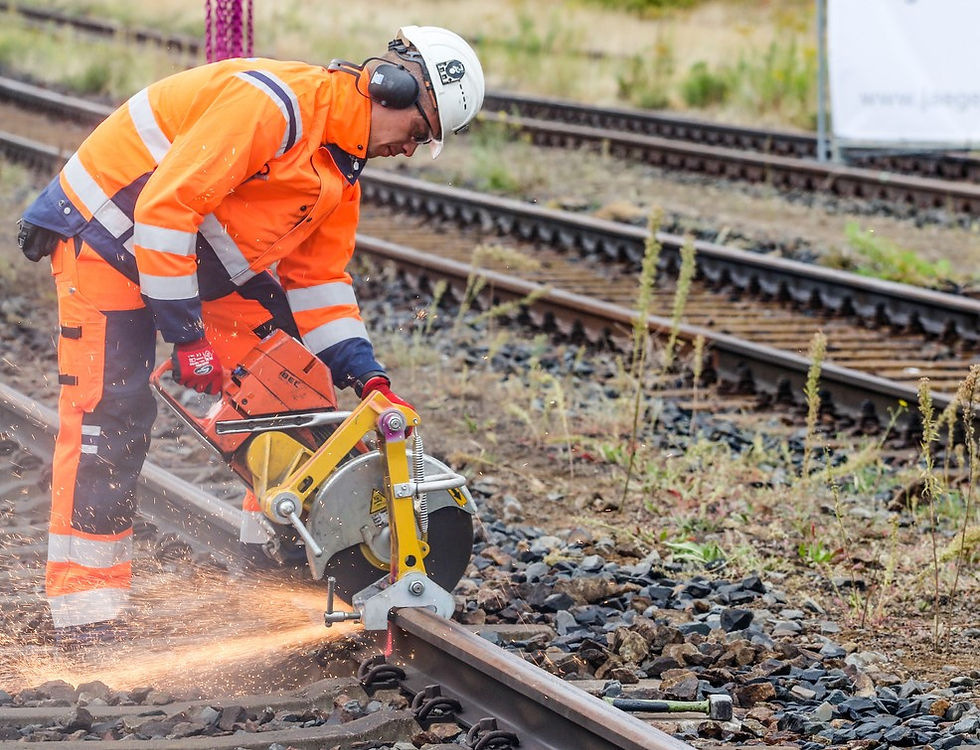
Hydraulic systems are the beating heart of countless industries — from construction to manufacturing, oil & gas, and beyond. When working properly, they deliver the raw power you need to get the job done. But when something starts to go wrong, even the smallest issue can snowball into costly downtime or, worse, a catastrophic failure.
The good news? Your hydraulic system will often give you warning signs before a major breakdown. The key is knowing what to look for and acting fast. In this article, we’ll cover the top 7 signs you need a hydraulic specialist to step in — and why ignoring these red flags could cost you.
Hydraulic Fluid Leaks
What to Watch For: Puddles of fluid near equipment, dripping hoses, or visible wet spots on components.
Why It’s a Problem: Leaks are one of the most common and obvious signs of trouble. Hydraulic systems rely on a closed-loop to maintain pressure and power. When fluid escapes, performance drops, and the system can overheat or fail entirely.
Solution: A hydraulic specialist can identify the source of the leak, whether it’s a worn seal, a damaged hose, or loose fittings, and perform the necessary repairs.
Slow or Sluggish Performance
What to Watch For: Equipment taking longer than usual to complete tasks, slower response times, or reduced efficiency.
Why It’s a Problem: Sluggish performance often indicates pressure loss, worn-out components, or contamination in the hydraulic fluid. These issues can escalate quickly if left unresolved.
Solution: Specialists use advanced diagnostic tools to measure pressure levels and pinpoint inefficiencies. They’ll replace worn components or flush and clean the system as needed.

Noisy Operations
What to Watch For: Whining, hissing, knocking, or any unusual noises during operation.
Why It’s a Problem: Strange noises can indicate problems like air trapped in the system, worn-out pumps, or cavitation (where vapor bubbles form and collapse, damaging components). Ignoring these sounds can lead to severe internal damage.
Solution: A hydraulic expert can identify whether it’s air in the lines, improper fluid levels, or mechanical wear causing the issue and fix it before it worsens.
Inconsistent or Erratic Movements
What to Watch For: Jumpy, jerky, or irregular movements in hydraulic-powered machinery.
Why It’s a Problem: Erratic behavior often stems from contaminated hydraulic fluid, valve malfunctions, or issues with the hydraulic pump. Left unchecked, it can lead to reduced precision, increased wear, and potential safety risks.
Solution: Specialists will inspect valves, pumps, and fluid quality to restore smooth, consistent operation.
Overheating Components
What to Watch For: Components, such as motors, pumps, or hoses, that feel excessively hot to the touch.
Why It’s a Problem: Overheating often indicates excessive friction, low fluid levels, blocked filters, or overworked components. Prolonged overheating can degrade fluid and damage seals, hoses, and pumps.
Solution: A hydraulic specialist will inspect for clogged filters, fluid contamination, or excessive strain on the system. They’ll resolve the root cause and recommend adjustments to prevent future overheating.
Unresponsive Controls
What to Watch For: Delayed or unresponsive operation when using levers, joysticks, or buttons.
Why It’s a Problem: Unresponsive controls often signal issues with hydraulic pressure, control valves, or electrical connections within the system. This can grind operations to a halt and increase the risk of equipment failure.
Solution: Experts can diagnose whether the issue lies in the hydraulics, electronics, or both. They’ll perform the necessary repairs to restore precision control.
Frequent Maintenance Needs or Recurring Issues
What to Watch For: The same problem keeps cropping up, or you’re constantly needing repairs on specific components.
Why It’s a Problem: If repairs are becoming routine, there may be an underlying issue with system design, fluid quality, or component compatibility that needs professional attention.
Solution: A hydraulic specialist can perform a full system evaluation to identify and resolve the root cause, whether it’s improper component sizing, fluid contamination, or aging equipment.
Why Ignoring These Signs Can Cost You
Neglecting hydraulic system issues doesn’t just lead to downtime — it can result in:
Higher Repair Costs: Minor repairs left unaddressed often turn into major (and expensive) overhauls.
Lost Productivity: Equipment failures mean lost time, which can delay projects and hurt your bottom line.
Safety Risks: Malfunctioning hydraulic systems can pose serious hazards to operators and nearby personnel.
By calling in a hydraulic specialist at the first sign of trouble, you can prevent these costly consequences and keep your operations running smoothly.
Why PSI Hydraulics is Your Trusted Hydraulic Specialist
At PSI Hydraulics, we know how critical your hydraulic systems are to your business. That’s why we offer:
Rapid Onsite Repairs: Our specialists come to you to diagnose and fix issues fast.
Preventative Maintenance Programs: Reduce breakdowns and extend the life of your equipment.
Custom Solutions: From hose kits to full system designs, we tailor solutions to your needs.
24/7 Emergency Services: Hydraulic failures don’t wait, and neither do we.
When your equipment shows any of these warning signs, don’t delay — call PSI Hydraulics today.
Frequently Asked Questions (FAQ)
❓ What is the most common cause of hydraulic system failure?
The most common causes include fluid contamination, leaks, and worn-out components. Regular maintenance can help prevent these issues.
❓ How often should hydraulic fluid be replaced?
Hydraulic fluid should typically be replaced every 1,000 to 2,000 operating hours, depending on the manufacturer’s guidelines and system usage.
❓ How can I prevent hydraulic system problems?
Regular maintenance, using high-quality fluid, and addressing small issues promptly are key to preventing major problems.

Final Thoughts
Don’t wait for a small issue to become a big problem. If your hydraulic system is showing any of these warning signs, it’s time to bring in the experts. At PSI Hydraulics, we specialize in fast, reliable hydraulic repairs, preventative maintenance, and custom solutions tailored to your needs.
Call us today at 281-516-8556 or request service online. Let us keep your operations running at full power!
.png)
Comments